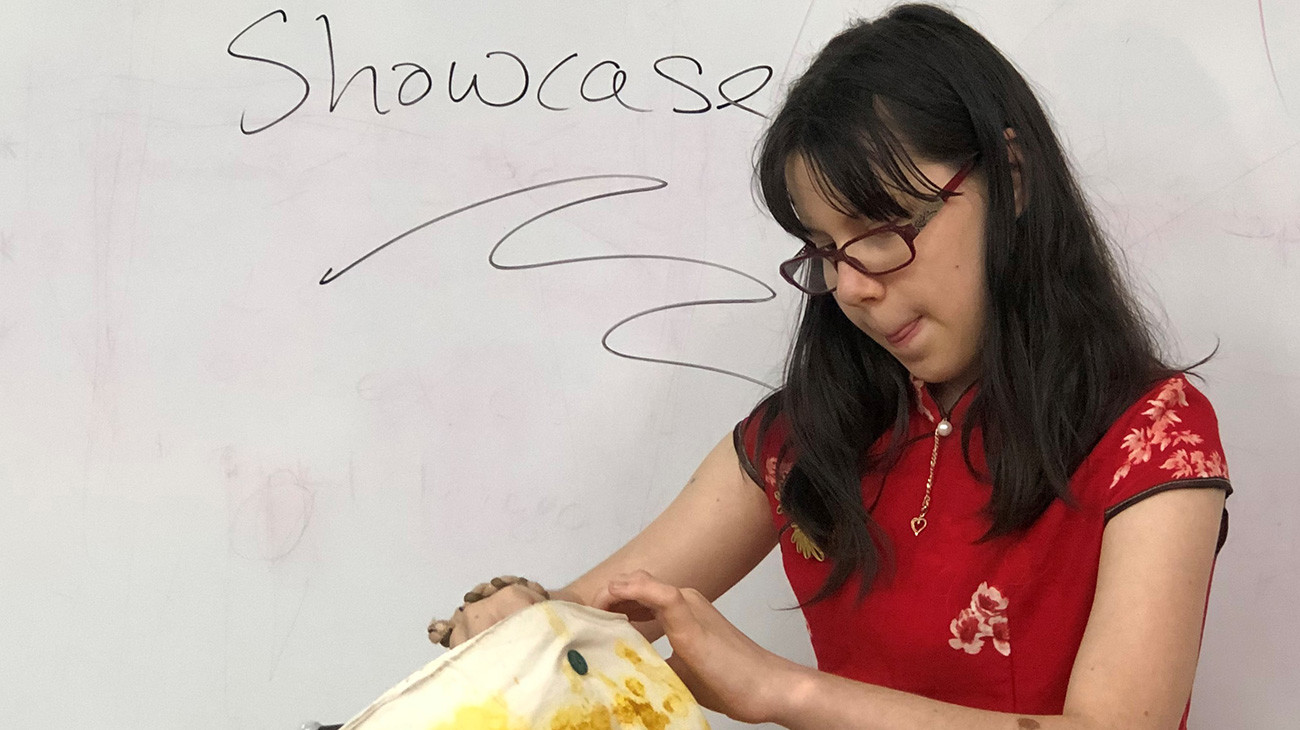Posted Thursday, 19 February 2026
Scitech sparks science fun in the Wheatbelt
Scitech is travelling 3,000 kilometres throughout the Wheatbelt to bring fun science experiences to 17 schools.
Scitech demonstrates how innovation skills and STEM knowledge can help address global challenges such as sustainable fashion.

Engaging girls in STEM through the challenge of sustainable fashion
Global challenges come in many guises, from sustainability and the environment, to pandemics and social equality. An emerging issue in recent years is the consumption of ‘fast-fashion’ and the sustainability of this global industry.
Fast fashion retailers are built on the foundation of buying cheaply made items, more often, hooking consumers on the idea of regularly updating their wardrobes with new, ‘on-trend’ outfits. Wearing these outfits beyond their on-trend life is positioned as a social faux pas. This consumption model creates numerous social and environmental problems, including:
Girls are predominantly the target market for the fast fashion industry, particularly tweens and teens. Raising awareness of this issue with this demographic is therefore an important step towards breaking the cycle. Scitech aims to elevate these conversations by demonstrating how innovation skills and STEM knowledge can help address such global challenges.
At the end of 2020, Scitech piloted a six-week workshop series “Sew Sustainable”, where 11 – 13-year-olds explored how technology can be used to develop new textile solutions to help reduce their environmental impact.
By focusing on fashion, a theme that is traditionally attractive to girls, the Sew Sustainable workshops provided a stimulating, relevant and inclusive STEM engagement opportunity.
A key objective of the WA State STEM Skills Strategy is encouraging girls’ participation in STEM, and Scitech, too, recognises this group as a key target audience.
The workshops introduced participants to the innovation process, boosting their capabilities in vital 21st century skills such as problem solving, collaboration, creativity and critical thinking. While there are many forms of the innovation process, in broad terms, it consists of the following stages:
Throughout the program, guest speakers were invited to share their stories and experiences in developing more sustainable fashion solutions.
Kristie Barnett, Fashion and Textiles Lecturer at North Metropolitan TAFE, spoke about her career that has spanned high fashion, offshore production processes in India and Indonesia and collaborations with local Malaysian designers.
Gary Cass, Founder of Cass Materials, also inspired participants with his vision to produce innovative eco-tech materials made from bacterial nanocellulose – a natural and biodegradable alternative for the global textile industry.
The series culminated in an exciting fashion showcase event at the Science Centre, where participants shared their individual and group projects with family and friends.
Feedback was overwhelmingly positive, with glowing comments from parents, including:
My daughter has absolutely loved every single week. The presenters were fabulous and the Scitech staff equally so.
An incredible opportunity, would love to see more please!
The information, inspiring guest talks, resources and the topic of fabric and sustainability all made an encouraging environment to create.
We would love to do more! The whole experience has been so rewarding.
The 16 enthusiastic participants maintained an almost 100 per cent attendance record for the six 2.5-hour sessions. The sustained exploration into STEM, through a relevant and engaging lens, triggered a positive response and appetite for STEM learning.
Elevating a popular interest to a global, real-world challenge, and introducing the innovation process to demonstrate solution development has proven to be a winning combination for Scitech in empowering young people in STEM.
Following such a positive pilot, Scitech looks forward to scaling this workshop series in both short and long-form programs.
Upon clicking the "Book Now" or "Buy Gift Card" buttons a new window will open prompting contact information and payment details.